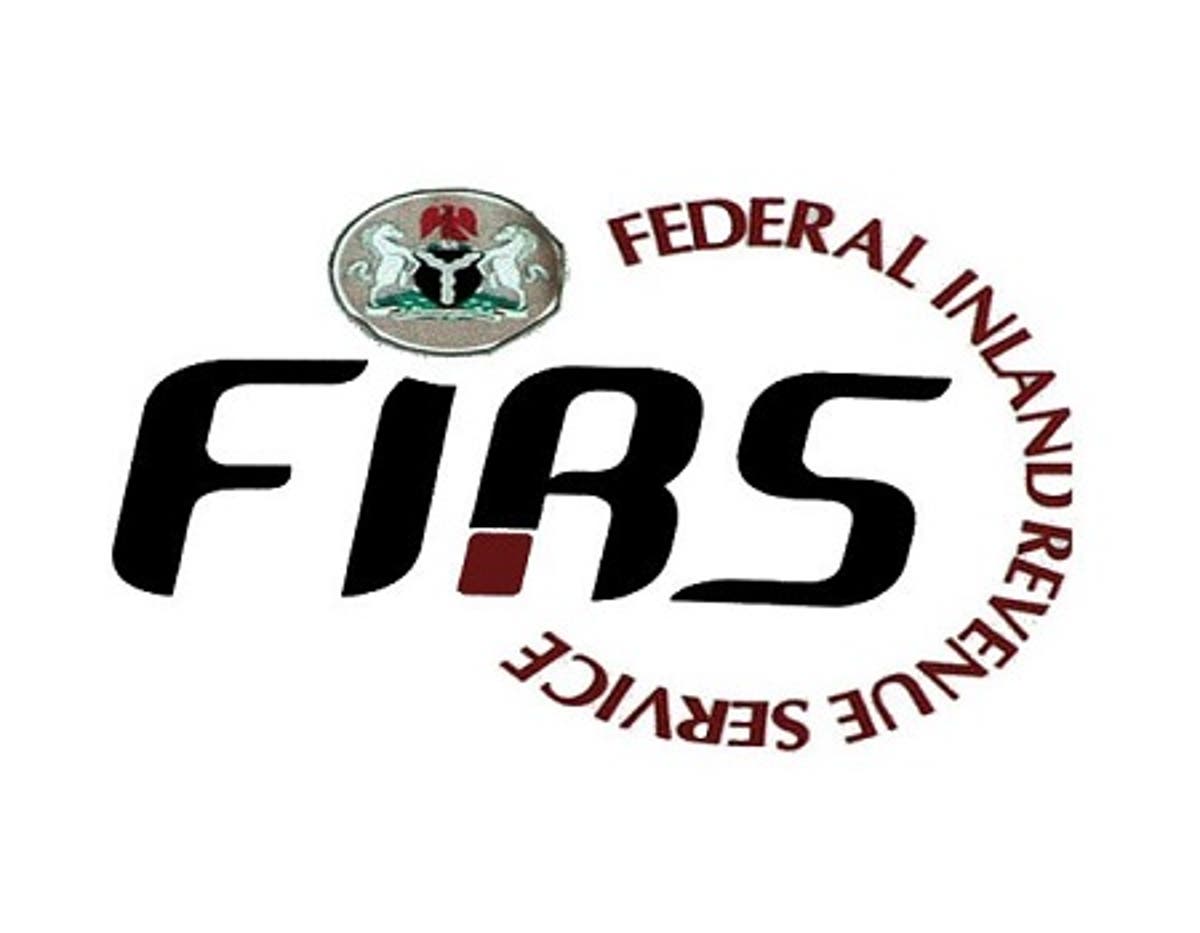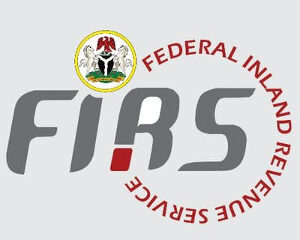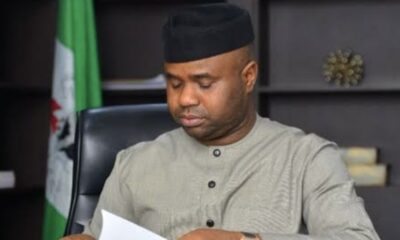Latest News
Exploring the finance Act to grow non-oil revenue

By Sunday Michael Ogwu
The expirience of COVID-19 especially on developing nations with dependent oil resource like Nigeria has further heightened the called for the diversification of revenue source.
Oil benchmark prices dropped below zero force producers to pay off takers because of the compounding demourage from warehouses.
Nigeria has not hidden its desire to diversify its revenue sources especially in the last couple of years with the Finance Act opening up more channels to extract non oil revenue.
The 2019 finance Act was described as the most far-reaching tax reform in 20 years, designed to facilitate corporate restructuring and ease the burden on small business.
President Muhammadu Buhari had said that providing incentives for infrastructure and capital market investment is a key aim of the 2019 Finance Act.
For the 2021 finance Act, took it forward by stipulates that additional investment, re-organisation or other forms of corporate restructuring shall not qualify for a further tax incentive under the gas investment programme.
Partial rollback of exemption of shares from capital gains tax
10% capital gains tax imposed on share disposal transactions where the aggregate disposal proceeds exceed NGN 100 million in any 12 consecutive calendar months;
Reinvestment relief provided to defer capital gains tax where disposal proceeds are wholly or partially reinvested; and
Taxpayers required to report disposals annually for ease of administration and compliance (to FIRS for corporate shareholders and State IRS for individuals);
New ‘Sugar Tax’ excise duty on nonalcoholic, carbonated, and sweetened beverages at a rate of NGN 10/liter to discourage excessive consumption of sugary beverages, which contributes to diabetes, obesity, etc.
Federal Inland Revenue Service (FIRS) automation and ICT reforms to increase revenue generation
FIRS empowered to sanction non-compliant taxpayers refusing access to IT systems.
FIRS allowed to deploy both proprietary and third-party tech applications to collect information from taxpayers;
Taxation of e-commerce business by non-resident companies on a fair and reasonable turnover tax basis
Empower FIRS to assess non-resident firms to tax on fair and reasonable turnover tax basis on turnover earned from providing digital services to Nigerian customers.
Introduce turnover tax on a fair and reasonable percentage of profits earned from providing digital services to Nigerian customers (i.e., 6% of turnover).
Clarify that such digital services include apps, high frequency trading, electronic data storage, online advertising, etc.;
VAT obligations of digital non-resident companies
The Act restrict VAT obligations mainly to digital non-resident companies that supply individuals who cannot self-account for VAT
Reduce compliance burden on other non-resident taxpayers that are not required to register for VAT in Nigeria;
Clarify that FIRS may appoint persons (including non-residents) for the purpose of tax collection; and clarify that such appointed persons may collect and remit taxes to FIRS / relevant tax authorities.
Real Estate Investment Trusts (‘REITs’) reforms
Clarify that withholding taxes deducted from Unit Trusts’ dividends are final taxes on Unit Trusts’ income;
Clarify that REITs’ special tax regime provisions apply to REITs set up as Unit Trust Schemes.
Amendments to clarify and improve administration of the levy to fund the National Agency for Science and Engineering Infrastructure (NASENI) fund, including that the levy comprises:
1% from the Federation Account; and 0.25% levy on profit before tax of major companies with turnover exceeding NGN 100 million in the banking, mobile telecommunication, ICT, aviation, maritime, and oil and gas sectors, which is collected by FIRS.
The FIRS also stated that taxpayers may pay tax due in instalments provided that the final instalment shall be paid on or before the due date of payment.
Under the current regime, Withholding Tax (WHT) deducted from payments to a Unit Trust shall be the final tax on such income provided the said deduction is fully remitted to FIRS.
Moreover, companies engaged in the business of banking, mobile telecommunication, ICT, aviation, maritime and oil and gas with turnover of N100 million and above, are liable to pay NASENI Levy at 0.25 per cent of their profits before tax and the tax is to be administered by FIRS.
The Finance Act also vested the FIRS with the duty to assess, collect, account and enforce the payment of the Nigeria Police Trust Fund Levy.
The levy is 0.005 per cent of the net profit of companies operating business in Nigeria as provided under Section 4 of the Nigeria Police Trust Fund (Establishment) Act.
While also strengthening the service, the Act stipulated that any person who fails to grant FIRS access to its information processing systems to deploy its automated tax administration technology after a 30 days’ notice, or such extension granted by the service, is liable to a penalty of N25, 000 for each day it continues to fail to grant the access.
Also, any bank that fails to prepare and submit quarterly returns of new accounts or any information requested by the relevant tax authority, or submit incorrect returns or information is liable to a penalty of N1 million for each quarterly return or information not provided or incorrect returns or information provided.
Also the FIRS is allowed to assess tax on the turnover of a foreign digital company involved in transmitting, emitting, or receiving signals, sounds, messages, images or data of any kind including e-commerce, app stores, and online adverts. Such companies are also obliged to charge, collect and remit VAT to FIRS.
Hike in Education Tax Could Raise N60bn Yearly- Expert
Fiscal Policy Partner and Africa Tax Leader, PwC Nigeria, Mr. Taiwo Oyedele, has noted that the Finance Act 2021, which has commenced is expected to generate an estimate of N60 billion in revenue yearly for the federal government warning however, that the development will have impact of tuition fees and further degenerate human capital in Nigeria in the long run.
He said this over the weekend at, “The Nigerian Economic Outlook 2022,” webinar organised by the Redeemed Christian Church of God’s The Kings Court parish.
The Finance Act 2021 amended tax on Tertiary Education Trust Fund from 2 per cent to 2.5 per cent, which the tax expert noted that with human capital being a major deficit to Nigeria, tax increase towards education shouldn’t have occurred.
He said: “I struggle to understand why we are trying to tax educational institution, educational institution, I don’t understand why when every plan that we have speaks to the fact that we need more education not just in terms of the quantity, but the quality and depth of education for us to lead in this new age.
“So, the implications would be that you have increased funds and my estimation is that educational tax will go up by about N60 billion in a year, so that we agree is significant, but it means that higher burden for companies that have to pay this. Tuitions are likely to go up because if I have a school and I have to pay tax now I have to do my calculations, I need to still pay salaries of staffs, I need to do so many other things like infrastructure that you need to maintain, so I’ll just adjust my tuition. “
On the implication it would have for Nigeria in the long-term, he said: “We may have long-term impacts on human development if we don’t find other safeguards to ensure that these does not create a bigger problem than the solution we are hoping to address.”
Also,
Tax will ensure growth in all sectors
Special Adviser to the President on Finance and Economy, Dr. Sarah Alade also at the webinar not that The federal government is committed to ensuring growth across all sectors.
She said: “We want to see prioritisation and implementation of critical infrastructure, physical, digital, financial infrastructure. We are deficient in infrastructures and we give priority to this.
“There must be measures to diversify our revenue base, we are hoping in this plan that by 2025, the present revenue to GDP which is about a less than 8 per cent, we would be able to grow it to 15 per cent of GDP and then there must be continuous support and interventions for manufacturing, for agriculture and for MSME as well.”
She further added: “We are also looking at a market driven economy movement to a unified liberalised foreign exchange market, which will guide what we do in the next four years. We want to enhance non-oil forex earnings and that is that there’s institutional reforms in public sector, law enforcement, judiciary, secure property rights, and many other things which we also have in the in human development as we are prioritising quality education, health research and skills generally for our people.
“Then the philosophy of government for this plan, national development is the highest priority of government and we’re hoping government will unlock all constraints to ensure that economic growth is enhanced, inclusive, sustainable over the plan period and beyond to generate employment and reduce poverty.”
“So, government will go beyond the normal provision of an enabling environment to also participate in vital sectors of the economy for instance, transports, we expect that government will be able to do some of these things to encourage the private sector to be able to come in and you know, invest in these areas, ”she added.
President of the Institute of Chartered Accountants of Nigeria (ICAN), Mrs. Comfort Olajumoke Eyitayo, said the current revenue challenge facing the country made it an imperative that all stakeholders should work with the government to address the recurring issue.
Eyitayo said: “The Finance Act introduced with the budget process in the country over two years ago is aimed at developing strategies to shore up capital (public revenue) for the economy.
This is a step that had to be taken by the government to enhance the income-generating potentials of the country.”
She, however, added that as, “we focus on modalities for revenue generation, the country must not lose sight of the expenditure side, develop strategies to guide against wasteful and unjustifiable spending.
“In essence, all stakeholders must continue to advocate for a public sector where value for money needs to be entrenched and office
How the FIRS has fared with reforms
The FIRS says it raked N6.4 trillion as revenue in 2021.
The Executive Chairman of FIRS,Mu
hammad Nami said that despite the limitations faced in 2020/2021, the agency achieved over a hundred percent of its collection target.
“The FIRS, in the year 2021 collected a total of N6.405 trillion in both oil (N2.008 trillion) and non-oil (N4.396 trillion) revenues as against a target of N6.401 trillion,” Nami said.
”Companies Income Tax amounted to N1.896 trillion; Petroleum Profits Tax amounted to N2 trillion; Value Added Tax amounted to N2.07 trillion; Electronic Money Transfer Levy amounted to N114 billion; Earmarked Taxes amounted to N208.8 billion; among others.
“Non-oil sector contributed 69 percent of the total collection in the year, while oil sector’s contribution was 31 percent of the total collection.
“The Service issued certificates for the sum of N147.8 billion tax credit to private investors and NNPC for road infrastructure under the Road Infrastructure Development Refurbishment Investment Tax Credit Scheme created by Executive Order No. 007 of 2019.”























